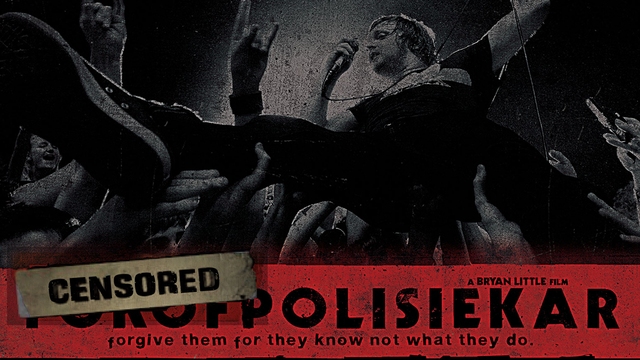They were born in a square-dancing suburb of Cape Town - too young to have experienced apartheid, but old enough to feel the guilt - and they took teenage angst to a whole new level. This is the story of the punk band who would change Afrikaner culture forever.
"Will someone call God, and tell him we don't need him anymore?" At the height of their fame, and mired in sex, drugs, and alcohol, the energy surrounding the band as they perform on a main stage tips over into violence: lead singer Francois is sick into the crowd, and a fan covers herself with it. Yet the words that enrapture a generation, bring on the fury of conservative South Africa:
"Chaos and war is at the door my friend. We will fight them and if necessary, we will drive them out!"
For the five best friends, the idea of an Afrikaans punk band was a running joke. But it soon became a way to confront all of the questions they had about their conservative Christian upbringing:
"we grew up being told what we could listen to, what we could wear, that we would go to hell if we swore...". They lived on $100 a day between them, sharing a single bedroom and wearing each others dirty clothes: writing and gigging and drinking on a perpetual loop. And suddenly they had a following.
"We actually thought no one would play us anywhere because of our name", the band laugh. As the fans snuck out of their bedrooms to see 'Fokof' gigs, presenters delighted in announcing the band.
"They kind of shook the media out of their political correctness". Suddenly people were talking about racism and homosexuality on prime-time TV. But the band's egos grew with their fame. Their spit-flecked melodies spoke of Satan, their music videos showed Afrikaner men kissing.
"Having the time of our lives, living from drink to drink" - the band was destined for a fall.
"We got death threats. It was like the crusaders - be Christian or die!" When a drunken Wynand wrote 'Fuck God' on a teenage fan's wallet, the band became the centre of an intense media storm. Drained by three years of touring, and fearing what the band had become, 'Fokof' called it a day.
"We're actually not as punk, or as apathetic as you'd like to think we are", Francois said,
"we actually did this to make a positive change. Like when parents give a kid a hiding. One sometimes needs a rude awakening". This fly-on-the-wall doc is as exhilarating as it is insightful.

WINNER, Encounters Doc fest, 2009

Official Selection, IDFA, 2009

Official Selection, Melbourne International Film Festival, 2010
 They were born in a square-dancing suburb of Cape Town - too young to have experienced apartheid, but old enough to feel the guilt - and they took teenage angst to a whole new level. This is the story of the punk band who would change Afrikaner culture forever.
They were born in a square-dancing suburb of Cape Town - too young to have experienced apartheid, but old enough to feel the guilt - and they took teenage angst to a whole new level. This is the story of the punk band who would change Afrikaner culture forever.
 WINNER, Encounters Doc fest, 2009
WINNER, Encounters Doc fest, 2009
 Official Selection, IDFA, 2009
Official Selection, IDFA, 2009
 Official Selection, Melbourne International Film Festival, 2010
Official Selection, Melbourne International Film Festival, 2010



